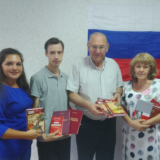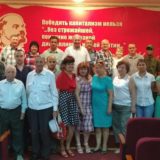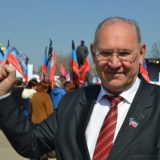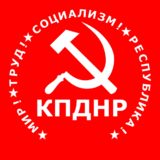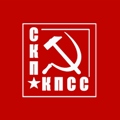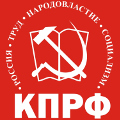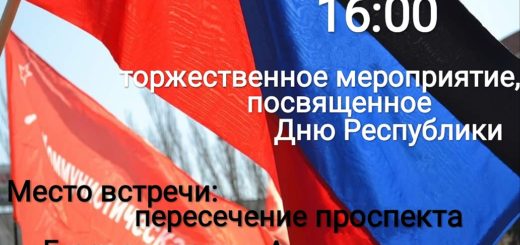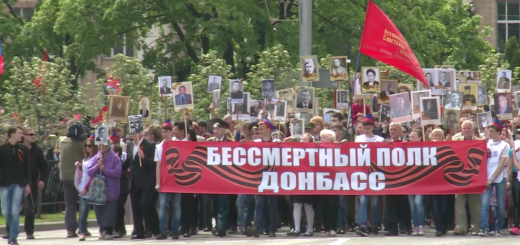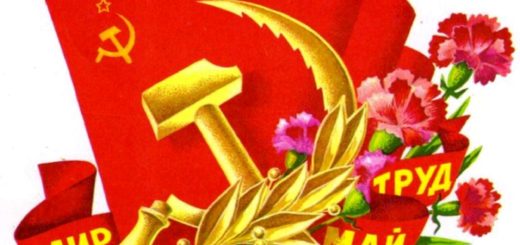The main feature of the labor movement in the territory of the former Ukraine, including Donbass, is its weak political activity. The decline of industry, caused by the temporary defeat of socialism, led to large-scale labor migration. Millions of Ukrainian workers went to search for better working conditions in the countries of near and far abroad. The movement of the labor force following the movement of capital is a characteristic phenomenon of capitalism. But in the post-Soviet space, this happens with the peculiarity that Ukrainian migrant workers are attached to their Motherland by their lodgings, which they inherited from the USSR. Such an inheritance does not exist in other capitalist countries; therefore, the place of residence often changes with changing jobs.
According to the Ukrainian Foreign Ministry, 5 million people work abroad. At the same time, the population without the Crimea, the DPR and LPR is just over 38 million people. In Ukraine, the volume of remittances by guest workers is much higher than the volume of foreign direct investment. In 2016, they transferred to their homeland more than 6.1 billion dollars, which is 6.5% of the country’s GDP. Ukraine ranks second on the continent after Poland by the volume of transfers. Despite the fact that the Ukrainian policy is based on anti-Russian rhetoric, the largest amount of remittances came from Russia — $ 977.6 million, or 22.2% of the total.
Thanks to economic ties, all with the same Russia, which have survived since Soviet times, it is as yet possible to keep high-tech enterprises afloat. According to the State Statistics Committee of Ukraine, commodity exports to Russia in the first four months of 2017 increased by 38.5%, reaching $ 1.2 billion, while more than a third of exports are engineering products. The Stockholm Institute for Peace Studies (SIPRI) reports that Ukrainian exports of military products to the Russian Federation increased from $ 237 million to $ 417 million in. In April, the Dnepropetrovsk-based Yuzhmash concluded a contract with the Russian company S7 SeaLaunch to manufacture and supply 12 Zenit launch vehicles for use in the “Marine Start” and «Ground Start». The management of the plant does not conceal that this contract will help to overcome the deep crisis with which the enterprise is confronted.
Other large enterprises are in much worse conditions. The production at such industrial giants as Zorya-Mashproekt, Sumy NPO, Antonov and the Kharkov Aviation Plant has dropped noticeably. For a long period of time, the Dnieper Metallurgical Plant, Azot plants in a number of Ukrainian cities were idle. Recently, the Odessa port plant has completely stopped. Agricultural products will again be the main export of Ukraine in the event of the final destruction of the industrial potential created in the Soviet years.
As a result of European integration, large enterprises employing several thousand people will certainly close, giving way to small ones. Enterprises which operate on the give-and-take basis are increasingly spreading in Ukraine. They produce low added value products: packaging, baby food, components for cars. As a rule, only a few hundred people work for them. Consequently, the European course will only increase the number of Ukrainian guest workers.
Due to the fact that Donbass has long been part of Ukraine, the features of labor movement in Ukraine and Donbass are similar in many respects. The process of the deindustrialization of the region was also rapidly developing after the restoration of capitalism. So, 29 coal mines worked in 1991 only in Donetsk. About a half of them stopped mining coal before 2014. With the outbreak of hostilities, many enterprises were destroyed by Ukrainian artillery. At present, coal is mined in Donetsk only at 4 mines. And only 19 coal-mining enterprises continue their work across the Republic.
It is untrue when they say that if the DPR had remained in Ukraine, it would have managed to save the enterprises destroyed in the course of hostilities. The remaining mines in the territory under Kiev’s control, where there are no blockade and shelling, are awaiting liquidation. It was reported last year in the Ukrainian Ministry of Energy that one third of the remaining 32 mines would be closed. The reason for this is the absorption of the Ukrainian energy market by American capital. Since September of this year, the first batch of thermal coal from the USA was delivered to the seaport of Odessa. Simultaneously, 11 longwalls were discovered in the DPR in 2017. At the same time, coal is supplied through the sea ports in the Rostov region to the world market. Only if the economic ties with the Russian Federation are maintained, it is possible at least partially to preserve the industrial potential of Donbass. In addition, the EAEU, unlike the European Union, does not put obstacles into the way of labor movement, therefore, the Donetsk and Lugansk proletarians who lost their jobs due to the hostilities can freely travel to Russian territory in search of better working conditions.
Under these circumstances, the work of Communists, especially European and Russian ones, among migrant workers is of particular importance in the development of the revolutionary working-class movement. For example, the Communist Party of Greece has long been conducting a purposeful work among migrant workers and has achieved certain results. But this issue is given insufficient attention in the entire post-Soviet space. Therefore, when some Communists insist that the proletariat is unrevolutionary in our country, then they only point to their own shortcomings. Without a revolutionary theory, there cannot be a revolutionary movement, said Lenin. Class consciousness, which is Marxism, can only be introduced into the proletarian environment from the outside. This is the main task of the Communist Party.
However, some leftists in the post-Soviet space spend more efforts and energy on evaluating the level of revolutionary character of other parties and organizations than on real actions. For example, Alexander Vaskovsky was allegedly authorized by the Supreme Council of the DPR (not to be confused with the People’s Council of the DPR – the author’s note) and sent for talks with representatives of the Central Committee of the Communist Party of the Russian Federation to discuss the issue of cleansing the ranks of the CP of the DPR and passing a motion of no confidence against Boris Litvinov. The meeting, of course, did not take place. And whom could one talk to, if he has no major achievements in the Donbass working-class movement or in the party construction? He, Vaskovsky, left Donbass for unknown reasons as early as the end of the summer of 2014, he did not participate in the organization of the Communist Party of the DPR, so it is very convenient for him to criticize the Communists of the DPR, being himself in the territory of the Russian Federation.
Authors who are far from the events in Donbass, who write on behalf of the Supreme Council of the DPR, an organ re-elected in November 2014, and publish in social networks their «revolutionary» reflections on how to build a socialist Republic seem to be important politicians only to themselves. In fact, they pursued with their appeals the goal of finding a sponsor in the person of the Communist Party of the Russian Federation. When this failed, the leaders of the Communist Party of the Russian Federation were accused of «betraying» the interests of the working class. However, the «revolutionaries» themselves do not conduct political work in the ranks of the proletariat, but only engage in criticizing other parties. Such actions are nothing but a form of opportunism.
The crisis of the labor movement in the post-Soviet space inevitably generates two extremes. The first extreme exists in the form of left parties of the parliamentary type, which only have weak support in the proletarian milieu. The second is in the form of leftist sects. The latter, of course, do not consider themselves such. On the contrary, they claim the title of public organizations or even political parties of the orthodox Marxist kind. Ten years ago, I also took part in the creation of such an organization — the Organization of Marxists. It consisted of everybody from Trotskyites and state officials to former members of the CPU, SPU and PSPU. Its internal working principle was very far from democratic centralism and represented a «mechanical» combination of small factions working in an autonomous mode. Of course, getting something productive from this form of organization was very difficult. All attempts to overcome sectarianism inevitably ended with another sectarian degeneration. And so, such an «organization» could in no way count for a long existence, and as a result it could not help falling apart as quickly as it had been created on the back of «anti-opportunistic» euphoria.
Of course, the Organization of Marxists succeeded in criticizing parliamentary parties, but in practice it failed not only to become a revolutionary party, but even to reach the level of those parties that were criticized. So Borotba emerged, which was formed out of former members of the Organization of Marxists. A public organization was scarcely created when the party appeared. It is noteworthy that it began to act following the logic of the same parliamentary parties, taking part in bourgeois elections and arranging flash mobs. At the same time, there were no major successes in the development of the theory or the revolutionary labor movement.
As for the author of the article, he joined the Communist Party of Ukraine after an unsuccessful experience in the Organization of Marxists. I had no doubt concerning the leaders of the Donetsk regional party committee. Of course, they were not Communists, but opportunists. The events of 2014 when they prohibited members of the party from participating in the «anti-Maidan» confirmed that. Another thing is that the middle managers, the secretaries of the city and district committees, turned out to be politically consistent and determined people. With them, we founded the Communist Party of the DPR in October 2014.
Before the founding of the CP of the DPR, a number of negotiations was held with other leftist activists, from the representatives of the same Borotba to the Union of the Left-wing Forces of Donbass that was formed later. The first left the war area after the first bombardments of Donetsk, the latter even in the summer of 2014 continued to underestimate the new political realities, namely the creation of the Republic. As a result, the proclamation of the CP of the DPR occurred without their participation. But this does not mean that our party is closed to such people. When the Borotbists returned to Donetsk, they were not forbidden to take part in the party’s activities, both public and internal. And members of the Union of the Left-wing Forces of Donbass even expressed the desire to join the CP of the DPR. Of course, nobody prevents them from doing this.
The CP of the DPR is open to everyone who supports the Program and the Charter, is willing to work in a party organization and pay membership fees. A discussion was initiated inside the party concerning the way our tactics and strategy should be shaped, which continues to this day. We are ready to discuss the strategy and tactics of the actions of all left-wing forces even with those who are not yet members of our party. But this discussion must be comradely, not sectarian. Sectarians, of course, take a very advantageous position when, without having influence on the broad masses, they remind of themselves in only one way – criticizing other parties. But the CP of the DPR has a different task.
In our opinion, the modern crisis of the working-class movement is largely due to the fact that the proletariat, like the bourgeoisie, acquires reactionary features in the era of imperialism. The working class is losing its revolutionary potential because of the integration into the system of commodity-money relations, where the «sedentary lifestyle», if one may so express it, plays no insignificant role. The modern proletariat earns at industrial enterprises enough to provide itself with tolerable living conditions. In turn, guest workers are bearers of revolutionary potential due to free movement. Labor migrants are often deprived of even minimal rights and are subjected to ruthless exploitation.
The revolutionary features are characteristic of the proletariat which is undergoing the stage of formation. The «left turn» in Latin America is also largely due to the emergence of the local working class, its exit from the peasant environment. As a result, the aggravation of class contradictions sometimes leads here to the fact that even those political leaders who had nothing in common with the “socialism of the 21st century” go over to its side. Not only a former president of Honduras, Manuel Zelaya, first positioning himself as a liberal, but also other leaders of Latin American countries serve as examples. For example, at its own time the pre-election rhetoric of the President of Ecuador Rafael Correa and the President of Uruguay José Mujica was more like the desire to build «capitalism with a human face». But everything changed radically at their first practical steps as leaders of their countries, because reality itself forced them to act following the logic of socialist transformations.
Despite the rise of the socialist movement, the left-wing forces of Latin America have one more serious problem to solve. I would describe it as a process of theory lagging behind practice. On the continent, there is an acute shortage of theorists who are able to comprehend the social processes taking place there. If this problem is not solved in the near future, then the «socialism of the 21st century» can face enormous difficulties on its development path. It can be stated with certainty that disregard for theory and historical practice is a danger for the «left turn» no less than the US military bases.
Proceeding from the international character of the communist movement, we note that its prospects in the territory of the former USSR largely depend on the successes of the left-wing forces in Latin America. The world revolutionary movement will be thrown far back in the event of the defeat of the Bolivarian alternative. Therefore, before we ask ourselves what we can do to revive the revolutionary movement in Donbass, it is necessary to answer the question what we should do to strengthen the «socialism of the 21st century» in Latin America. For today, it equally needs both assistance in the struggle against US imperialism, in which Donbass has been participating for more than three years, and a broad discussion on overcoming marketability in socialist production. And not only the Soviet project of the National Automated System for Economic Management (OGAS), but also the Chilean invention of Cybersyn – an automated system for collecting and processing economic information – are exemplary here. Unfortunately, this development has as yet been given due attention neither here at home nor in Latin America. But this is already a topic for another article.
Stanislav Retynskyi, Secretary of the Central Committee of the CP of the DPR

